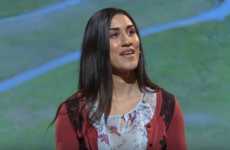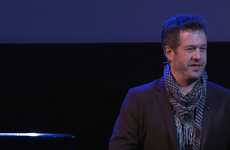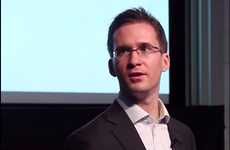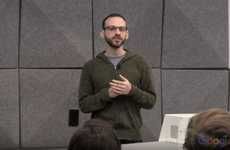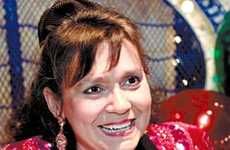
Need Inspiration?
Get inspired by 4,000+ keynote speaker videos & our founder, a top keynote speaker on innovation.
Dawn Smith's Talk on Evangelical Cults Considers Psychology
Riley von Niessen — March 23, 2018 — Keynote Trends
References: tedxnatick.org & youtube
Dawn Smith, a freelance writer and producer, starts out her talk on Evangelical cults by talking about the "Jesus Movement" in the late 60s and early 70s in California, when some former hippies channeled many of their ideals into religion.
It was during this time that Smith's father and grandfather started a small cult called The Assembly. At the time, Smith was just 5 years old, however she found herself on the street with her father as he screamed gospel at passersby. Although this made her incredibly uncomfortable, Smith grew up surrounded by those who shared the extreme views of her father.
The Assembly shared a desire to return to the simple lives they believe the early Christians led, meaning that women were seen as second class citizens, as were all people of color. Mostly, The Assembly targeted college-aged teens and young adults who were alone for the first time, making them easier to manipulate.
Humorously, Smith contrasts what was and was not allowed in the cult, highlighting the absurdity of the extremist belief system. Additionally, Smith considers why cults are so adamant on refusing the title, as language has the power to cause people to question their beliefs, leaving the leaders without as much power. When she was of age, Smith went off to college, and she quickly learned that the outside world wasn't the scary and dark place that she was raised to think it was.
Although her ideas had evolved far beyond the cult, she was still afraid to leave as it meant leaving her friends and family behind, likely forever. As she became more aware of the constant abuse and inequality that the cult promoted, Smith was finally able to bring herself to leave.
With her talk, she highlights manipulative processes that can deeply affect the psychology of those in cults, as well as the power of education. She inspires her audience to stay critical of authority and to remember their own self worth, telling them to never let another's ignorance prevent them from leading the lives they want.
It was during this time that Smith's father and grandfather started a small cult called The Assembly. At the time, Smith was just 5 years old, however she found herself on the street with her father as he screamed gospel at passersby. Although this made her incredibly uncomfortable, Smith grew up surrounded by those who shared the extreme views of her father.
The Assembly shared a desire to return to the simple lives they believe the early Christians led, meaning that women were seen as second class citizens, as were all people of color. Mostly, The Assembly targeted college-aged teens and young adults who were alone for the first time, making them easier to manipulate.
Humorously, Smith contrasts what was and was not allowed in the cult, highlighting the absurdity of the extremist belief system. Additionally, Smith considers why cults are so adamant on refusing the title, as language has the power to cause people to question their beliefs, leaving the leaders without as much power. When she was of age, Smith went off to college, and she quickly learned that the outside world wasn't the scary and dark place that she was raised to think it was.
Although her ideas had evolved far beyond the cult, she was still afraid to leave as it meant leaving her friends and family behind, likely forever. As she became more aware of the constant abuse and inequality that the cult promoted, Smith was finally able to bring herself to leave.
With her talk, she highlights manipulative processes that can deeply affect the psychology of those in cults, as well as the power of education. She inspires her audience to stay critical of authority and to remember their own self worth, telling them to never let another's ignorance prevent them from leading the lives they want.
7
Score
Popularity
Activity
Freshness


